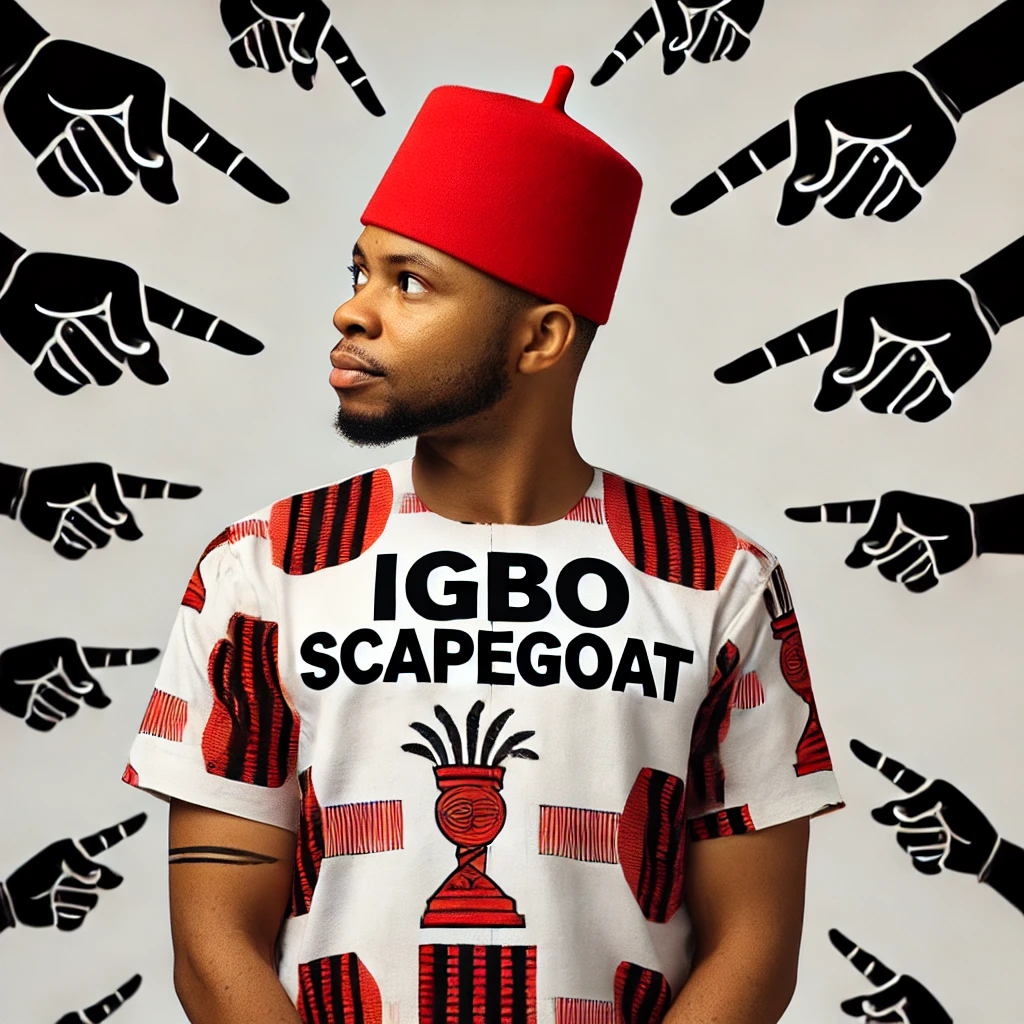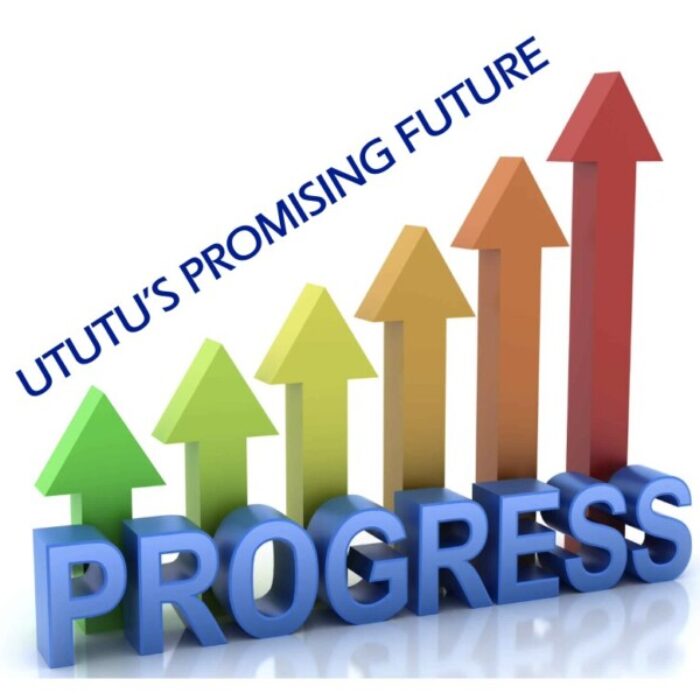By Nnaoke Ufere, PhD
In Nigeria’s complex web of challenges, one constant remains: the Igbo people are invariably blamed for every problem.
It seems the Igbo are perpetually blamed for every societal ill, from planned protests and labor strikes to student demonstrations and economic woes like inflation.
They are unfairly scapegoated for kidnapping and political violence, and even when they face ethnic animosities that lead to the destruction of their livelihoods, including the demolition or burning of their stalls. They are blamed even when they are the victims.
This relentless scapegoating has become a disturbing pattern, where the Igbo are automatically held responsible for every problem, regardless of the actual causes or culprits.
The Tinubu administration is shamelessly resurrecting the tired and toxic “blame it on the Igbo” narrative, resorting to blatant gaslighting by falsely accusing the Igbo people of being the masterminds behind alleged attempts to sabotage his presidency.
This baseless smear is compounded by the ludicrous claim that the Igbo are orchestrating the planned August 1 national youth protest.
In reality, this movement is a spontaneous outpouring of frustration and hardship by young, unemployed, and hungry Nigerians from diverse ethnic backgrounds.
By peddling these falsehoods, the administration is not only perpetuating a reprehensible tradition of scapegoating but also attempting to distract from its own failures and divisiveness.
The truth is that the youth are protesting against the visionless, incompetent, and disastrous leadership of the Tinubu administration, which has inflicted severe damage on the economy and the livelihoods of millions across the nation.
Under this administration, young Nigerians face rampant unemployment, an unbearable cost of living, and a profound sense of hopelessness, seeing no viable future ahead.
Their frustration is a direct response to the administration’s ineptitude and its failure to provide effective governance and opportunities for a better life.
All well-meaning Nigerians must reject this dangerous and divisive rhetoric, recognizing it as a thinly veiled attempt to stoke ethnic tensions, suppress dissent, and cling to power. It is crucial to stand united against such tactics to preserve national unity and promote a more just and inclusive society.
The response of Igbo politicians, Ohaneze Ndigbo, pastors, and social and cultural groups to the Tinubu administration’s scapegoating of the Igbo people has been disappointing and self-defeating.
Instead of confronting the false narratives and challenging the scapegoating, they have resorted to cowering and issuing warnings about the dangers of Igbo youth participating in peaceful protests.
This approach not only reinforces the perception of Igbo vulnerability but also emboldens the scapegoaters, as it validates their strategy of intimidation.
By failing to assertively counter the scapegoating, these leaders inadvertently perpetuate a vicious cycle, making the Igbo people increasingly vulnerable to further scapegoating and marginalization.
Regardless of whether the Tinubu propagandists acknowledge it or not, it is imperative for the Igbo to decisively expose the ulterior motives driving the blame-shifting narrative and emphasize the pressing need for unity and constructive solutions to tackle Nigeria’s genuine challenges.
By taking this stance, the Igbo will effectively debunk the notion that they are vulnerable to scapegoating and convey a resolute message: they will no longer be exploited as scapegoats or held responsible for Nigeria’s problems.
As equal and law abiding citizens of Nigeria, they demand respect, justice, and equality, and will assert their rights and contributions to the nation’s progress.
One may ask: why does Tinubu blame the Igbo? It is painfully obvious that the Tinubu administration is perpetuating a sinister ethnic bias by scapegoating the Igbo people. This despicable propaganda aims to portray the Igbo as troublemakers to the rest of the country. By pitting tribes against each other, the administration garners sympathy from other ethnic groups, thereby securing their support.
As René Girard, a French philosopher and social scientist, wrote, “The aim of scapegoating is not to resolve the crisis but to maintain the unity of the scapegoater community at the expense of the victim – the scapegoated.”
This disturbing phenomenon has historical parallels, notably in Nazi Germany, where Hitler scapegoated innocent Jews for the problems faced by the German people. Similarly, the Igbo are being blamed for Nigeria’s woes, deflecting attention from the true causes of the country’s challenges.
Much like the Nazi regime’s scapegoating of Jews foreshadowed the horrors of the Holocaust, the current scapegoating of the Igbo people in Nigeria once again raises alarming concerns about their safety, dignity, and future.
Historically, the targeting of the Igbo was a grim precursor to the pogroms and the devastating civil war that claimed millions of lives. This alarming trend serves as a warning signal, highlighting the urgent need to address and prevent further atrocities.
Nigerians, acknowledge and denounce the sinister scapegoating of the Igbo people, lest the nation succumb to the horrors of history’s darkest moments. Nigerians must not yield to the Tinubu administration’s intimidation and blackmail tactics.
Instead, Nigerians must stand united against Tinubu’s divisive rhetoric and demand a more inclusive and equitable Nigeria. Nigerians must reject the toxic blame game and strive for a nation where every citizen is valued and respected, regardless of ethnicity or background. Nigeria’s greatness lies beyond Tinubu’s blame game.





